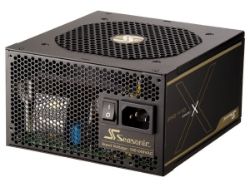 More often than not you come upon a computer problem that you can't seem to figure out. A rebooting computer that isn't overheating; a hard drive that seems to be performing below standard without any clear reason.
More often than not you come upon a computer problem that you can't seem to figure out. A rebooting computer that isn't overheating; a hard drive that seems to be performing below standard without any clear reason.
One of the most common causes of computer problems is a low quality power supply. I took my own experience, and that of others across the net to bring you a general guide to what power supplies to buy.
A Power Supply Units (or PSU for short) is probably one of the most important parts of a computer. Having too low a wattage can cause problems with devices that will not receive enough power. Bad quality PSUs can cause shorts or surges in the system, which can lead to damage on sensitive components such as motherboards. Thus, choosing the right power supply is a must for any computer technician to ensure that a PC runs smoothly and safely.
General Info on how PSU's work
The Power Supply Unit's purpose is converting AC (Alternating Current) from your house electricity to DC (Direct Current), which is used by the computer. A PSU also converts or 'switches' the DC current to lower voltages for the various components inside the computer (3.3 volts, 5 volts, 12 volts, etc). Newer ATX PSUs (which are the standard now) have a special standby power circuit for the power switch in order to allow the motherboard to detect the power switch being turned on.
Choosing a size
One of the first considerations when buying a PSU is its purpose. Are you planning on putting it into a low-end office computer, or a high-end gaming setup?
Standard computers are those used for light gaming, office usage, browsing, etc. These computers usually lack a graphics card, and run on a pentium 4 or an equivalent CPU. A quality 400 to 550 watt PSU is sufficient to run the computer smoothly.
A more game-related computer with upgrades and a low- to medium-range graphics card falls into the second category. With a dual core or quad core processor this usually requires at least a 550 watt up to a 750 watt PSU depending on the power necessities, especially of the graphics card.
With the serious gamer comes a serious gaming computer, and that requires a PSU with more power. A computer with a quad core or higher CPU, a high-end graphics card (possibly SLI or Crossfire), overclocking and high-end applications or games usually requires a PSU of 750 to 850 watts of very high quality.
There are even stronger PSU's of 950W+, but they are more for high-end graphic setups (such as SLI or Crossfire) or large capacity servers.
Calculating a size
 Power Supply Calculators are useful tools for the end user to work out what PSU is the best for the system intended. Although there are many of them on the internet, there are a few that are recommended by professionals :
Power Supply Calculators are useful tools for the end user to work out what PSU is the best for the system intended. Although there are many of them on the internet, there are a few that are recommended by professionals :
Choosing a brand
Although there are many brands on the market, many of them are cheap manufacturers that cut corners mass producing low-quality power supplies that are bad for computers and their users.
Although there are thousands of well-known brands and reccomendations on the internet, there are a few that stand out. In general, brands such as SeaSonic, Thermaltake, Corsair, Coolermaster and XFX are good makes to look at. Here on TSF we generally recommend Seasonic and XFX, but for an extensive list of several brands and their usage, check out the forum article here. Choosing a high quality, brand-name PSU is always a better choice than going for the cheaper makes. You might pay more, but it'll save you money in damages in the future.
Afterword
Often underappreciated and considered, Power Supply Units are probably the most important part of a computer and buying cheap means affecting your own computer's livelyhood and quality. So make the right choice when it comes to your PSU.

No comments:
Post a Comment